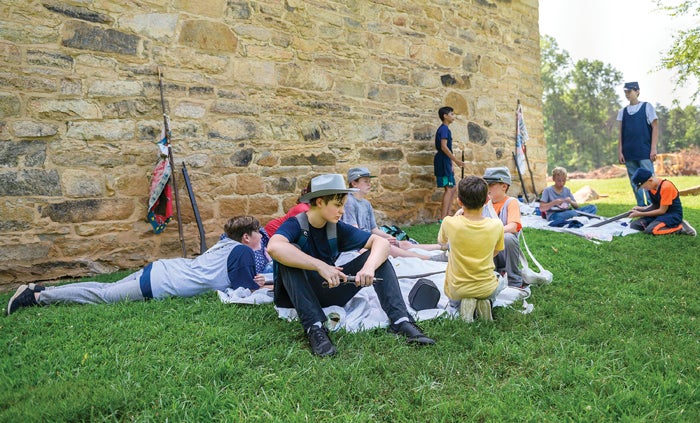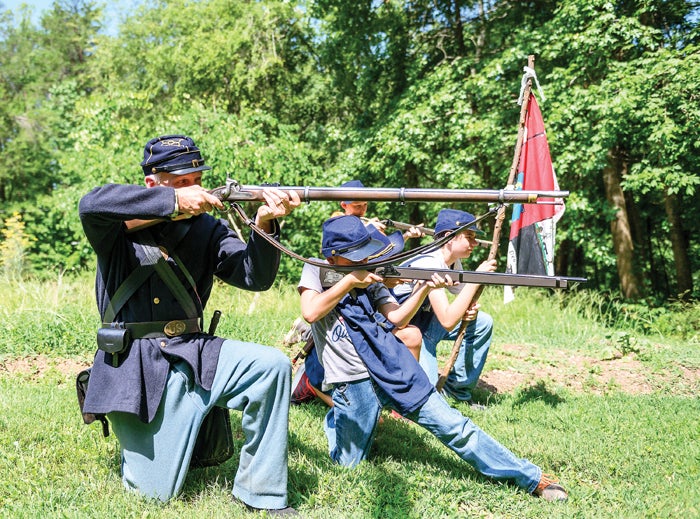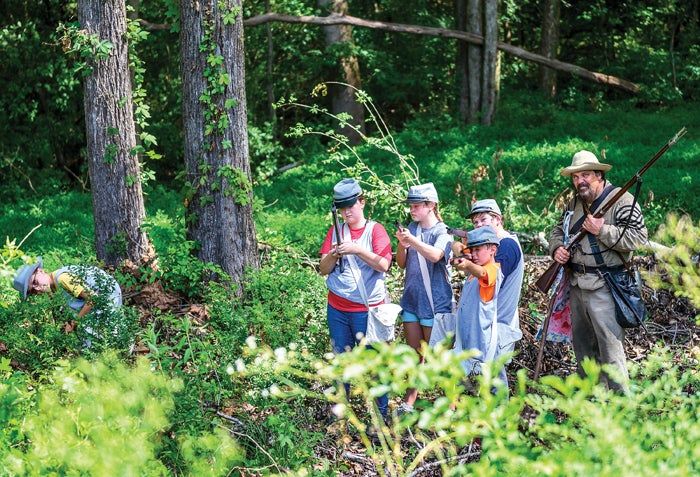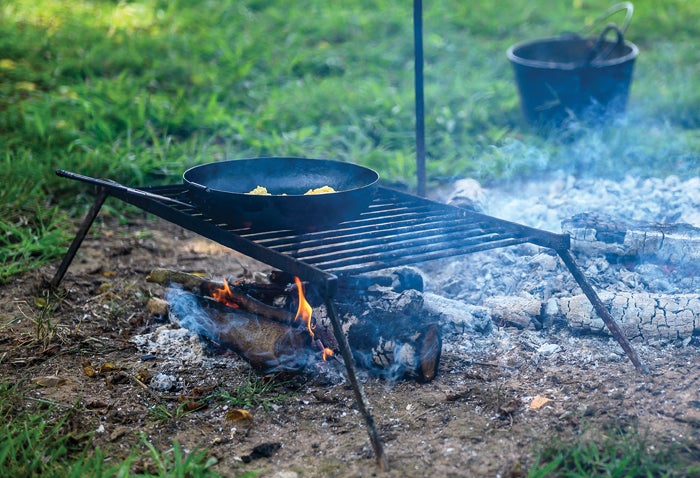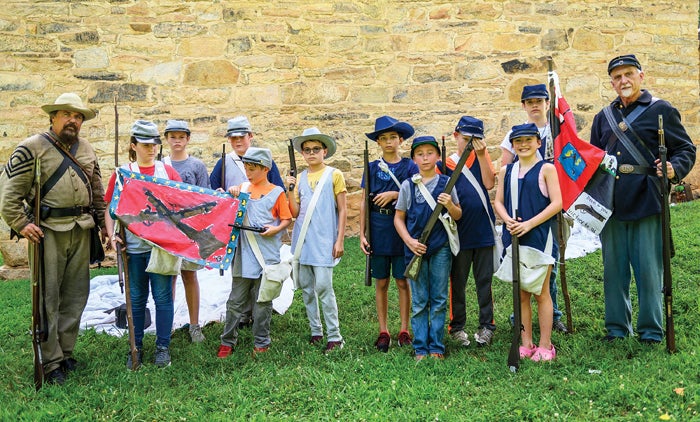Rowan Museum brings hands-on learning through Civil War camp
Published 12:00 am Wednesday, July 17, 2019
As the blistering July sun crept higher over the horizon, a group of young soldiers makes the trek back to Granite Quarry’s Old Stone House. The group is red-faced, fatigued — fresh from a skirmish and ready to relax in the building’s shade.
They’ll be rewarded for their effort with a sampling of fatback fried in a cast-iron skillet over an open flame, and excitement over the seemingly meager pickings abounds as caps come off: some blue, some gray, representing both the Union and Confederacy of the Civil War.
Caps abandoned, the soldiers are left in their true forms: They’re sixth- through eighth-grade students, participants in this year’s Civil War camp hosted by Rowan Museum.
“The camp is really a way to give students an idea of what life really was like for soldiers during the Civil War: what they ate, how they dressed, how they fought,” said Rowan Museum executive director Aaron Kepley. “… We’re not glorifying the war, we’re telling it like it really was, helping them see it wasn’t some romantic, ‘Gone with the Wind’ type of existence.”
Volunteer re-enactor Stephen Harris, working with the group of 10 campers during a skirmish at Old Stone House on Wednesday, said the focus was on exploring the experiences of those on both sides of the war.
“Our focus is that all of these men were all American, whether they were from the North or the South,” he said. “This is American history; this is military history.”
It was also the nation’s greatest military conflict, he said, adding 650,000 men died during the war.
“How could you ignore something as massive as that?” said volunteer re-enactor Greg Cheek.
For Kepley and other volunteers during the weeklong camp, the opportunities for learning about facets of American history within the context of the war abounded.
Marian Hough, a history teacher from West Rowan Middle School, guided the group through Civil War-era medical practices, using costume makeup to apply wounds and bandages to help “build the authentic feel of the lessons.”
Learners were surprised to learn of medicine’s progression over the centuries, of how soldiers routinely lost limbs or their lives to wounds and infection.
Other lessons included other aspects of a soldier’s daily living: meals, battle tactics, navigation and more.
“It’s funny when we try to help people relate to that period of time, to relate to the mindset of that period,” said Cheek. “There wasn’t a Food Lion on every corner or cellphone towers.”
And to both Cheek and Harris, nothing helped facilitate these concepts like hands-on learning experiences like Civil War camp, a concept camper Jayaraj Mazzone echoed.
“History has always been one of my better subjects,” he said, “Wars are interesting, just learning the technology they had or didn’t have to use during them. … It’s been fun this week to battle, to do something other than just lay around at home on the couch. That’s just not my style.”


